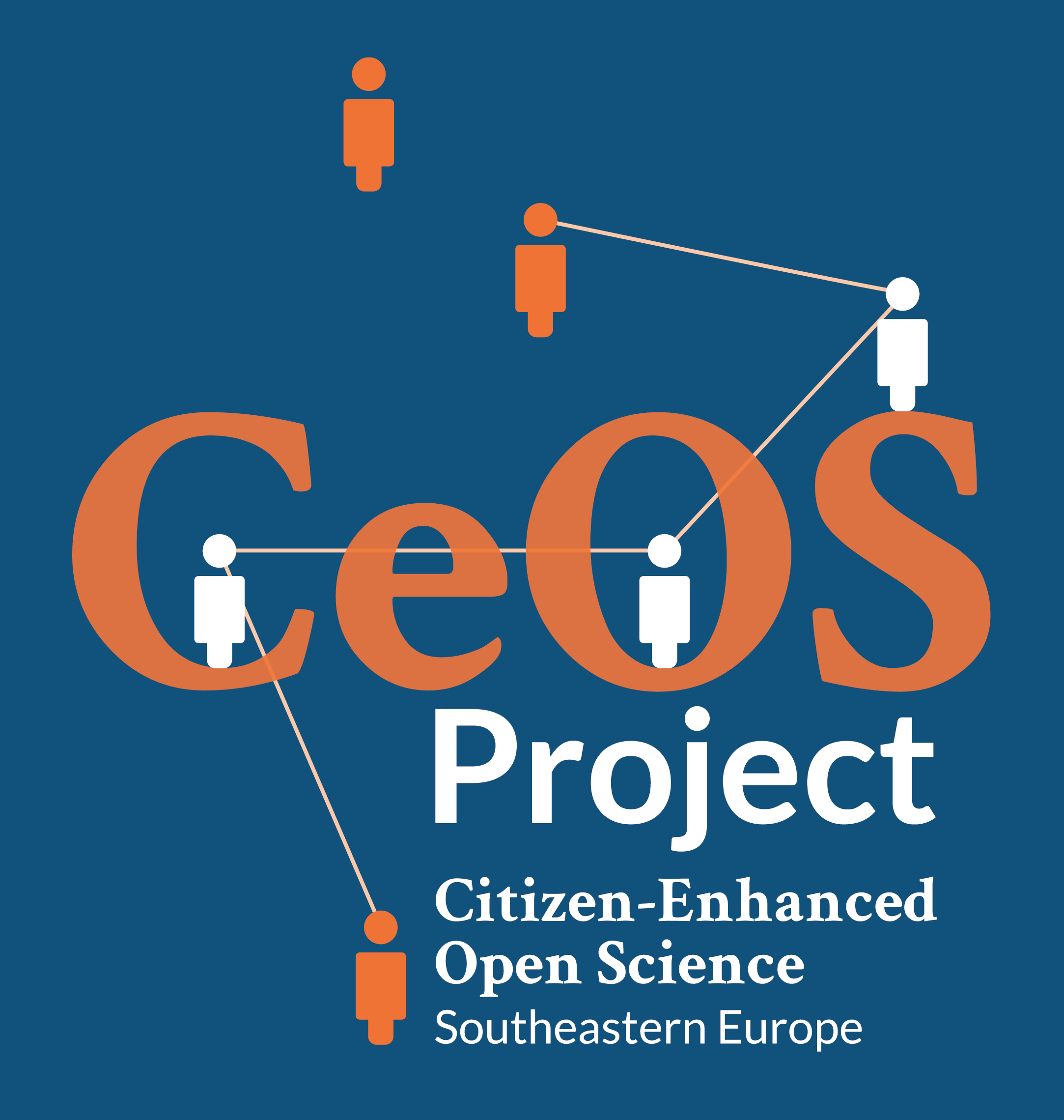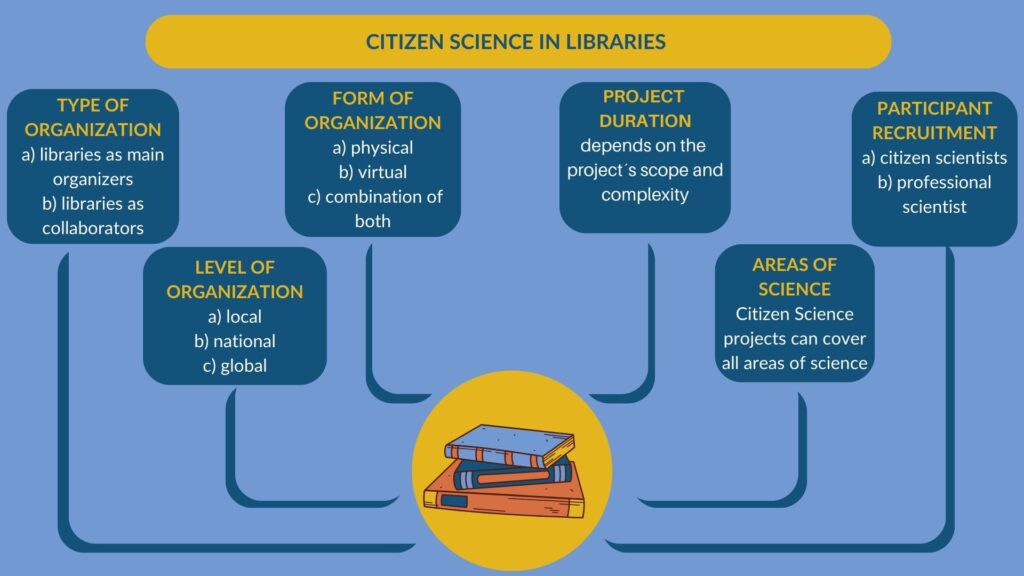Libraries can be implementers of Citizen Science and prove to be strong partners in supporting scientific research. To better explain this position to Croatian librarians, Dolores Mumelaš from the National and University Library in Zagreb has written and published a review article titled "Citizen Science and Libraries as its Implementers," and the highlighted conclusions are presented in the following text.
Citizen Science in all types of libraries
Citizen Science projects can be organized in various ways in all types of libraries: national, academic, special, public, and school libraries. Libraries may differ based on their core services, the type of users they serve, the type of collections they possess, and the methods they employ to provide services to users and organize various events and activities. However, what is common to all libraries is their support to users in terms of helping them acquire new knowledge and skills, exchange ideas, open up data, and promote science communication.
Libraries are inclusive, providing equal opportunities for learning and development to all members of the community they serve. Diversity and inclusion are key elements in supporting Citizen Science. Different types of libraries may be closer to the general public (e.g., national libraries), local communities (e.g., public and school libraries), or the scientific community (e.g., scientific and academic libraries). All types of libraries should promote the idea of Citizen Science by first and foremost educating the community they serve about its benefits.
Implementation of Citizen Science in Libraries
An overview of articles presenting global practices of libraries engaging in Citizen Science leads to several conclusions on how libraries can organize and support Citizen Science projects:
- Type of organization – Libraries can either be the main organizers or collaborators in Citizen Science projects. As main organizers, they independently shape Citizen Science projects through all stages. As collaborators, they can contribute to projects in various ways, such as providing education, offering resources from their collections, and providing space.
- Level of organization – Libraries can organize Citizen Science projects at the local, national, and global levels. Local projects focus on the library's immediate community, national projects involve the country they are located in, and global projects involve connecting with citizen scientists, researchers, and collaborators worldwide.
- Form of organization – Citizen Science projects run by libraries can take place in physical, online, or hybrid formats. Physical projects may not necessarily be limited to library premises, as libraries can organize Citizen Science projects in nature or other institutions. Online projects enable engagement with participants from various locations. Often, a combination of both physical and online elements is used, where data is collected physically and then entered into online databases.
- Project duration – The duration of Citizen Science projects varies depending on their scope and complexity. Projects can last for a few days, weeks, months, or even span several years.
- Areas of science – Citizen Science projects can cover all areas of science
- Participant recruitment – When organizing Citizen Science projects, libraries must carefully select targeted participant groups, including citizen scientists and professional researchers. Libraries need to educate their communities about Citizen Science, provide all necessary project information, promote the initiatives, and listen to society's needs.
- Modes of involvement – Libraries can engage in Citizen Science projects through various means, such as educating participants (e.g., database searches), providing space and resources, creating Citizen Science portals, promoting ideas and projects, curating and lending Citizen Science kits, developing tools and applications to support Citizen Science, utilizing platforms like Wikimedia, and joining existing projects through online citizen science platforms (e.g. SciStarter, Zooniverse, iNaturalist).
Advantages of Citizen Science for Libraries
Citizen science helps libraries attract new users, increase social cohesion, and improve the perception of the library's social value. Since Citizen Science can encompass all areas of science and explore a multitude of diverse topics, some of these topics may be appealing to individuals who are not regular library users. Projects can also be of interest to governmental and non-governmental organizations, local authorities, civic initiatives, and others, all of whom can potentially become partners involved in projects and collaborate with libraries, thus increasing the visibility of libraries in society.
Through Citizen Science, libraries can enrich their collections and make them more accessible. Successful projects demonstrate that project participants, with proper education and clear instructions, can quickly and effectively contribute to the enhancement of, for example, digitized collections by describing and labeling them. By being citizen scientists, individuals raise awareness of the library's sources and collections, while also assisting in the implementation of library processes.
Finally, as a benefit of Citizen Science projects for libraries, the development of new competencies and professional improvement can be highlighted. Such projects stimulate library staff to develop additional skills, including community engagement methods, project management, communicating scientific topics, and better business process management. Organizing Citizen Science projects requires thoughtful consideration and in-depth analysis, somewhat different from preparing regular library programs and activities. This leads to the development of additional competencies, and more experience with Citizen Science projects contributes to their enhancement.
Conclusion
Libraries can play a crucial role in building bridges between science and the public, and Citizen Science in libraries must be relevant, practical, and applicable to real community issues in which the library operates.
Planning Citizen Science projects in libraries requires careful consideration of all possible challenges and tailoring them to the needs of the community they serve. Libraries hold importance in society due to their informative and educational roles.
Citizen Science goes beyond merely "getting to know" scientific discoveries – it involves experiential participation in them, offering libraries the opportunity to further their role in popularizing science.
Author: Dolores Mumelaš, National and University Library, Zagreb











